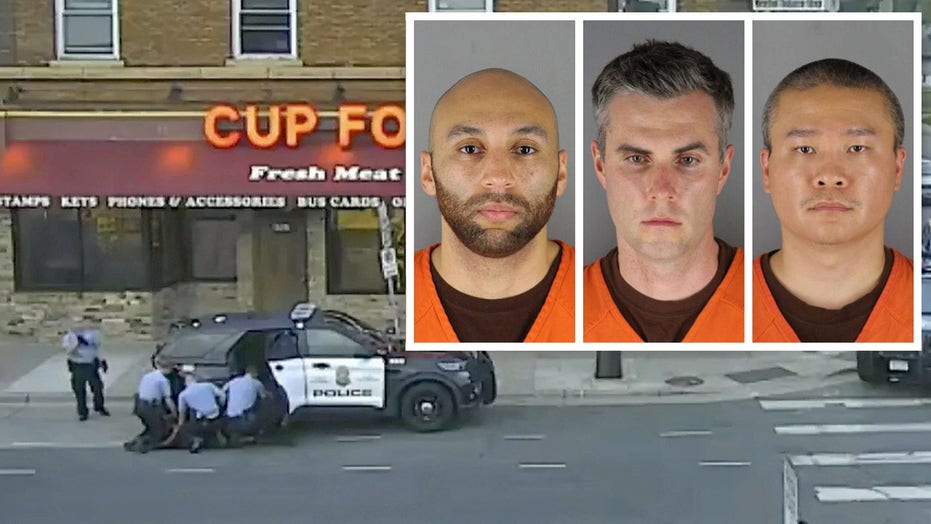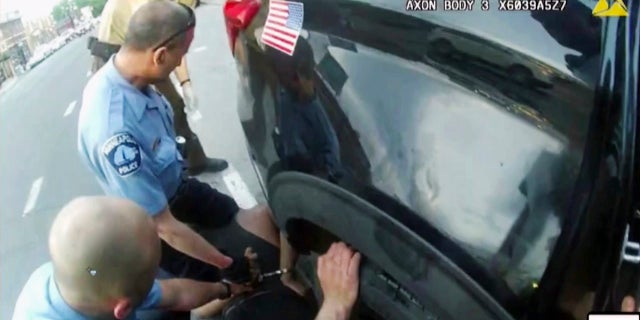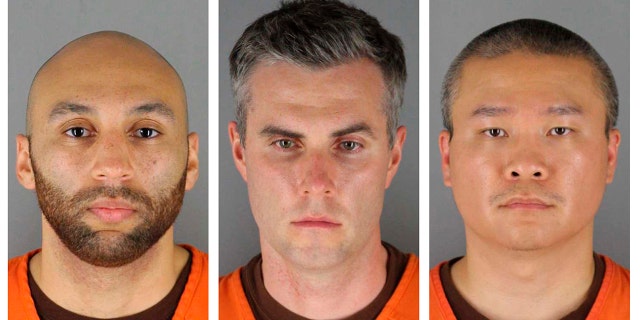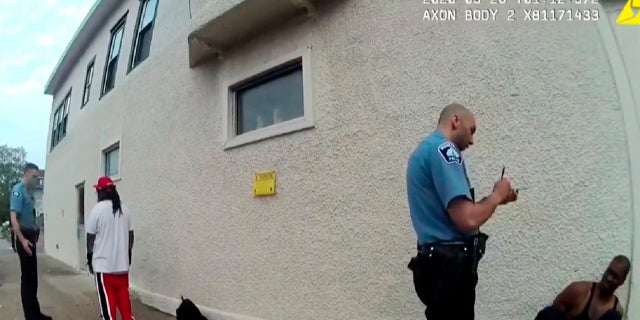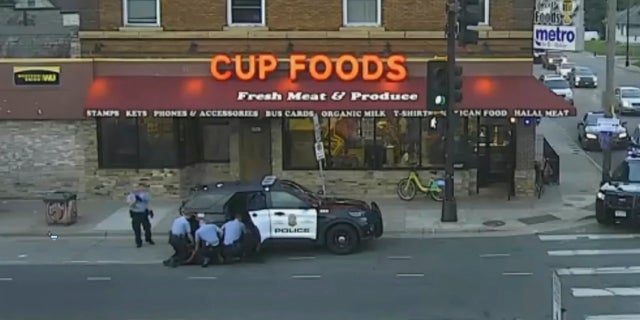Fox News Flash top headlines for February 7
Fox News Flash top headlines are here. Check out what’s clicking on Foxnews.com.
George Floyd’s life could have been spared if Minneapolis police officers had changed his position, and his chances of survival would have “doubled or tripled” if the cops had performed CPR when his heart stopped, according to expert testimony provided Monday.
Floyd died because his upper airway was compressed by Officer Derek Chauvin’s knee, while his position on the hard asphalt with his hands cuffed behind his back — as two other officers helped hold him down — did not allow his lungs to expand, said Dr. David Systrom, a pulmonologist and critical care physician at Boston’s Brigham and Women’s Hospital. The airway compression raised carbon dioxide levels and restricted the flow of oxygen, Systrom added.
The medical expert testified at the St. Paul, Minneapolis, courthouse as the government’s 12th witness in the federal civil rights trial for former Minneapolis Police Officers J. Alexander Kueng, Thomas Lane and Tou Thao.
In this image from police body camera video shown as evidence in court, paramedics arrive as Minneapolis police officers, including Derick Chauvin, second from left, and J. Alexander Kueng restrain George Floyd in Minneapolis, on May 25, 2020.
(Minneapolis Police Department via AP, File)
Kueng, who is Black, Lane, who is White, and Thao, who is Hmong American, are charged with willfully depriving Floyd of his constitutional rights while acting under government authority. The charges allege that the officers’ actions resulted in Floyd’s death.
“Oxygen delivered to the heart and brain is critical to survival,” Systrom said, later calling Floyd’s death “an eminently reversible respiration failure event.”
Kueng, Lane and Thao are accused of depriving Floyd, 46, of his rights when they failed to give him medical aid as Chauvin knelt on the Black man’s neck for nine and one-half minutes. Kueng and Thao are also accused of failing to intervene in the May 2020 killing that triggered protests worldwide and a reexamination of racism and policing.
This combination of photos provided by the Hennepin County Sheriff’s Office in Minnesota on June 3, 2020, shows, from left, former Minneapolis police officers J. Alexander Kueng, Thomas Lane and Tou Thao.
(Hennepin County Sheriff’s Office via AP, File)
Kueng knelt on Floyd’s back and Lane held his legs while Thao kept bystanders back, prosecutors have said.
During Monday’s questioning, U.S. Attorney Manda Sertich asked Systrom what he believed caused Floyd’s death, to which he responded that Floyd died from asphyxia, although the medical examiner did not list the condition as a cause.
Systrom, who is also an associate professor at Harvard Medical School, testified that video from Kueng’s body camera shows him holding Floyd’s wrist and leaning down on Floyd’s chest, which would have prevented Floyd from being able to relieve the pressure. In video from Lane’s body camera, it looks like Kueng’s knee is putting pressure on Floyd’s abdomen, Systrom said. He said “it’s difficult to know” if Floyd would have died without the pressure Kueng applied.
FILE – In this image from police body camera video shown as evidence in court, Minneapolis police Officers Thomas Lane, left, and J. Alexander Kueng, second from right, gather information as they take George Floyd into custody outside Cup Foods in Minneapolis, on May 25, 2020.
(Minneapolis Police Department via AP, File)
He said Lane’s restriction of Floyd’s legs also would have prevented Floyd from getting into a position to breathe properly.
Prosecutor Manda Sertich asked what, if anything, could have been done before Floyd lost consciousness. Systrom responded that it “could have been as simple as removal of pressure on the upper airway by a knee” or letting Floyd sit up with handcuffs on.
When asked about Floyd’s chances of survival if officers had immediately begun CPR after his cardiac arrest, Systrom replied: “They would have been doubled or tripled.”
Systrom said Floyd did not die of his coronary artery disease or hypertension, and that there was no evidence of a heart attack. Floyd’s medical records showed he had high blood pressure, but mostly normal heart rate and rhythm, he said.
In this image from Minneapolis city surveillance video, Minneapolis police are seen attempting to take George Floyd into custody May 25, 2020, in Minneapolis, Minn.
((Court TV via AP, Pool))
“Would he have died of heart disease on that day if not for the officers’ restraint?” Sertich asked.
“A definitive no,” replied Systrom.
Chauvin was convicted of murder and manslaughter in state court last year and pleaded guilty to a federal civil rights charge. He remains in prison.
Just miles away in Minneapolis, members of the City Council held a virtual Policy & Government Oversight Committee meeting Thursday afternoon to discuss the police use of no-knock warrants. The meeting was prompted by the Wednesday morning shooting death of Amir Locke.
Hundreds protested over the weekend, including at what is believed to have been the home of Minneapolis Police Department’s interim chief.
The Associated Press contributed to this report.
Source: Read Full Article
